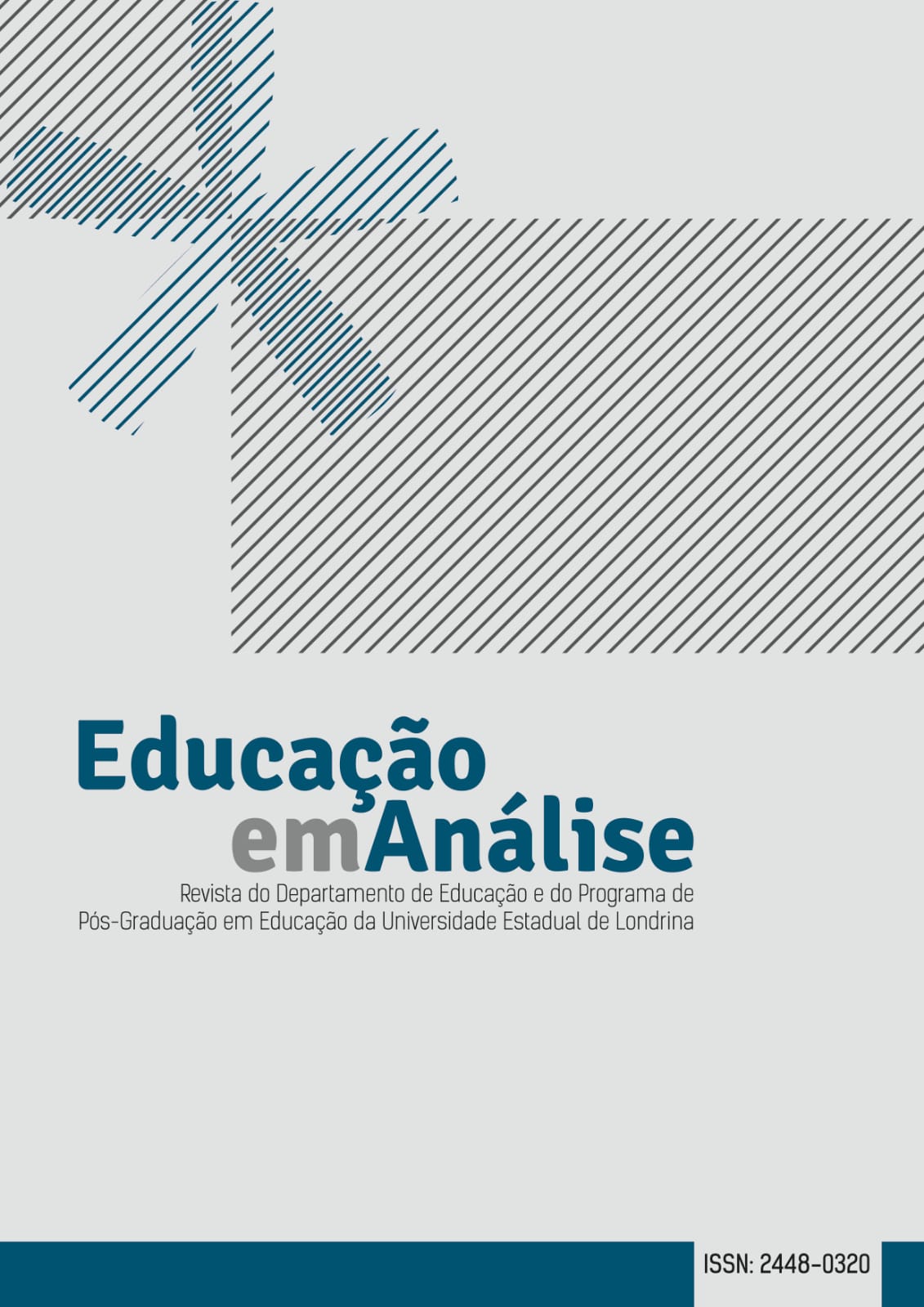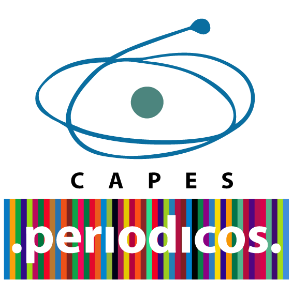Digital education in childhood: reflections on children's rights in the age of connections
DOI:
https://doi.org/10.5433/1984-7939.2023v8n2p206Keywords:
Childhood; Education; Technologies; School; FamilyAbstract
Living with computers, tablets, smartphones and other electronic devices is so natural among children that these resources eventually become an extension of their own bodies. Through these tools, they communicate, play and exchange messages, often without the supervision of an adult who is not aware of the pitfalls of the digital universe. In view of this, this study aims to discuss the risks and benefits of information and communication technologies - ICTs, in childhood, and to demonstrate the importance of the partnership between school and family in building a safe and dialogic relationship between children and culture. digital and its different technological artifacts. Bibliographic in nature, the study intends to contribute to the broadening of the debate about the conscious use of ICTs and their benefits in children's education. It was concluded that, although the legal prescriptions criminalize any type of circulation of images or transmission of contents that pose risks to the physical and moral integrity of children, it is up to the family and the school to carry out virtual surveillance and monitoring of Internet use. Therefore, it is necessary that parents and teachers understand and appropriate the digital language, in order to contribute to a more welcoming digital education in childhood.
Downloads
References
BRASIL. Constituição da República Federativa do Brasil. Brasília, DF: Senado Federal: Centro Gráfico, 1988, 292 p.
BRASIL. Lei Federal nº 12.965 de 23 de abril de 2014. Dispõe sobre os princípios, garantias, direitos e deveres para o uso da internet no Brasil. Brasília, DF: Senado Federal, 2014. Disponível em: www.planalto.gov.br/ccivil_03/_ato2011-2014/2014/lei/l12965.htm. Acesso em: 12 de abril de 2023.
BRASIL. Lei Federal nº 13.709, de 14 de agosto de 2018. Lei de Proteção de Dados Pessoais. Presidência da República. Secretaria-Geral- Subchefia para Assuntos Jurídicos. Disponível em: www.planalto.gov.br/ccivil_03/_ato2015-2018/2018/lei/l13709.htm. Acesso em: 03 de maio de 2023.
BRASIL. Lei nº 8.069 de 13 de julho de 1990. Dispõe sobre o Estatuto da Criança e do Adolescente e dá outras providências. Presidência da República, Casa Civil, Subchefia para Assuntos Jurídicos, Brasília, D.F, 13 jul. 1990.
BRASIL. Saúde de Crianças e Adolescentes na era digital. Manual de Orientação- Departamento de Adolescência. Sociedade Brasileira de Pediatria, 2016. nº 1, p. 1-13.
BRASIL. Uso saudável de telas, tecnologias e mídias nas creches, berçários e escolas. Manual de Orientação- Departamento Científico de Pediatria do Desenvolvimento e Comportamento e de Saúde escolar. Sociedade Brasileira de Pediatria, 2019. nº 6, p.1-5.
BUCKINGHAM. David. Cultura Digital, Educação Midiática e o Lugar da Escolarização. Educação e Realidade. Porto Alegre, v. 35, n. 3, p. 37-58, set./dez., 2010. Disponível em: http://www.ufrgs.br/edu_realidade. Acesso: 10 de maio, 2023.
COUTO. Edvaldo Souza. A infância e o brincar na cultura digital. PERSPECTIVA, Florianópolis, v. 31, n. 3, 897-916, set./dez. 2013. Disponível em: https://periodicos.ufsc.br/index.php/perspectiva/article/view/2175-795X.2013v31n3p897. Acesso: 06 de abril de 2023.
FREITAS, Maria Teresa. Letramento Digital e Formação de Professores. Educação em Revista. Belo Horizonte, v. 26, n. 03, dez. 2010. Disponível em:
http://www.scielo.br/pdf/edur/v26n3/v26n3a17.pdf. Acesso: 05 de fevereiro, 2023.
INÁCIO, Cláudia de Oliveira et al. Criança, infância e tecnologias: desafios e relações aprendentes. Revista Texturas. v. 21. n.46, p.37-58. Abr/jun. 2019. Disponível em:http://www.periodicos.ulbra.br/index.php/txra. Acesso em: 05/02/23.
LÉVY. Pierre.Cibercultura. Tradução de Carlos Irineu da Costa. São Paulo: Ed. 34, 1999. (Coleção TRANS).
MULLER, Juliana Costa. FANTIN, Monica. Mediações familiares e escolares entre crianças e tecnologias digitais. Pro-Posições, Campinas, SP. v. 33. dez. 2022. Disponível em: https://www.fe.unicamp.br/a-fe/publicacoes/periodicos/pro-posicoes. Acesso: 12 de maio, 2023.
OTHON. Renata Alves de Albuquerque. COELHO. Maria das Graças Pinto. Retratos da Geração Digital: um estudo exploratório sobre o consumo midiático e a sociabilidade em Rede na Infância. C&S - São Bernardo do Campo, v. 42, n. 3, p. 139-166, set.-dez. 2020.
TAPSCOTT, Dan. A hora da geração digital: como os jovens que cresceram usando a internet estão mudando tudo, das empresas aos governos. Rio de Janeiro: Agir Negócios, 2010.
Downloads
Published
How to Cite
Issue
Section
License
Copyright (c) 2023 Jaqueline Delgado Paschoal

This work is licensed under a Creative Commons Attribution-NonCommercial 4.0 International License.
Os artigos publicados na Revista Educação em Análise estão sob a Licença Creative Commons Atribuição 4.0 Internacional, garantindo Acesso Aberto. Deste modo, os autores mantêm os direitos autorais de seus trabalhos e, em caso de republicação, solicita-se que indiquem a primeira publicação nesta revista. Essa licença permite que qualquer pessoa leia, baixe, copie e compartilhe o conteúdo, desde que a devida citação seja feita. Além disso, autoriza a redistribuição, adaptação e criação de obras derivadas em qualquer formato ou meio, incluindo uso comercial, desde que a atribuição à revista seja mantida.
A revista se reserva o direito de efetuar, nos originais, alterações de ordem normativa, ortográfica e gramatical, com vistas a manter o padrão culto da língua e a credibilidade do veículo. Respeitará, no entanto, o estilo de escrever dos autores. Alterações, correções ou sugestões de ordem conceitual serão encaminhadas aos autores, quando necessário.
As opiniões emitidas pelos autores dos artigos são de sua exclusiva responsabilidade.
























